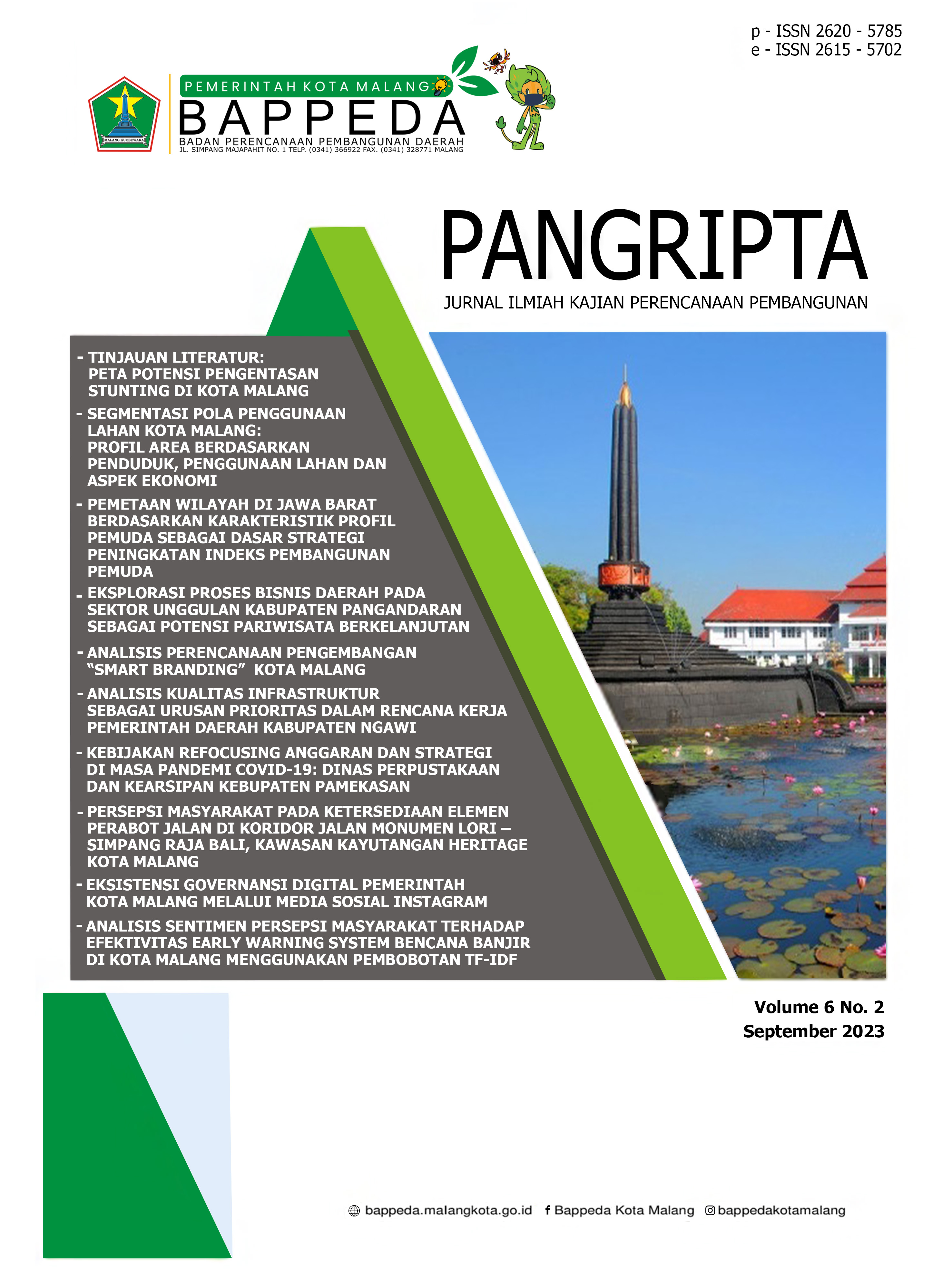ANALISIS PERENCANAAN PENGEMBANGAN “SMART BRANDING” KOTA MALANG
DOI:
https://doi.org/10.58411/pangripta.v6i2.221Keywords:
smart branding, city branding, smart city, Malang City, social inclusion and sustainability.Abstract
In recent years, smart city branding has become important in the economic growth of cities around the world. Malang City, as one of the largest cities in East Java, Indonesia, has adopted the concept of smart branding to form a strong local identity and perception. Smart branding is a strategic approach that integrates innovative technology, community engagement, and sustainable development practices. Malang City shows commitment in building a unique image by utilizing sustainability and cultural excellence. This study discusses the implementation of smart branding in Malang City through several programs and initiatives. In addition, the method used in this study is through a qualitative approach to understand the potential of smart branding in Malang City. The analysis was conducted by collecting data from the Malang local government and analyzing Malang City planning documents. The results of this study illustrate the existence and success of smart branding in Malang City through programs that have been implemented. Furthermore, there are several smart branding strategies that have been successfully implemented in Malang City, such as Malang City Tour (MACITO), Malang Creative Center (MCC), Malang Creative City EKRAF Malang, and the Malang Tourist Info application. These strategies have helped rebrand the city and strengthen the city's identity as a thriving, dynamic and creative tourism hub.

Downloads
Published
How to Cite
Issue
Section
License
Copyright (c) 2023 Suhartono Winoto, Ima Kumalasari, Ulfa Binada

This work is licensed under a Creative Commons Attribution 4.0 International License.

